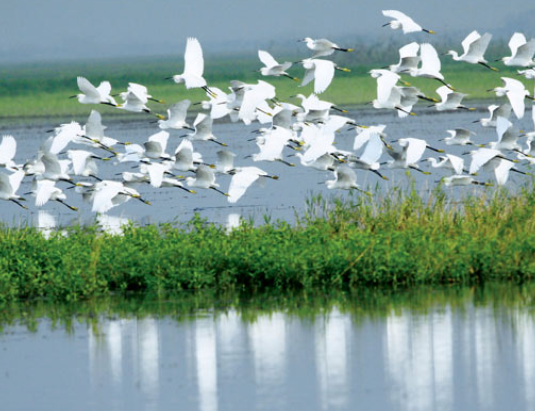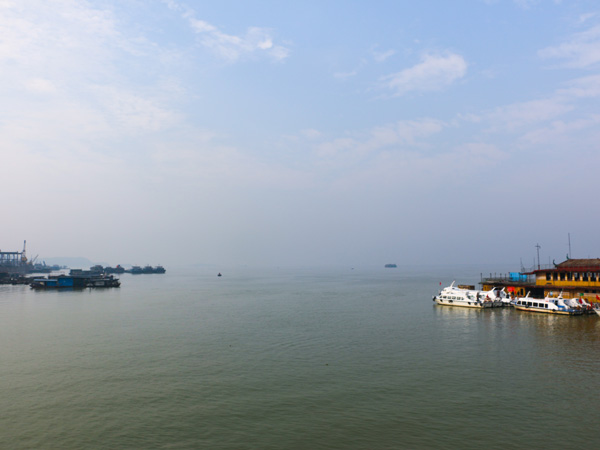Dongting Lake is a large, shallow lake in South China. Actually, the provinces of Hubei and Hunan are named after their location relative to the lake: Hubei means “North of the Lake” and Hunan, “South of the Lake ». Dongting Lake is famous for its historical scenic spots and is new Nature Reserve. It is also the site of Junshan Island and is home to the finless porpoise, an endangered species.
Did you know the earliest rice paddies yet discovered in the world were in the Liyang plain, which was then on the western edge of Dongting lake ?
During the Han Dynasty, Yunmeng Marsh, which lies to the north of Dongting Lake in Hubei Province, served as the main flood-basin of the Yangtze. The rich sediment of the marsh attracted farmers. Embankments were built, keeping the river out, and the Dongting Lake area south of the Yangtze gradually became the river’s main flood-basin.
At that time, Dongting Lake was China’s largest freshwater lake. Because of its size, it gained the name Eight-hundred-« li »-Dongting ( « Li » was 500 meters long )
Nowadays, it is the second-largest, after Poyang Lake, as much of the lake has been turned into farmland
Grotto of Spirits or Dragon house ?
“Dongting” literally means “Grotto Court”, and the lake was named for the huge hall or cavern, which was believed to exist beneath the lake, where the spirits of the Sage-King Shun’s wives Ehuang and Nüying were said to be the rulers of this grotto, which was claimed to have underground passages opening to all parts of the Empire.
Dragon boat racing is said to have begun on the eastern shores of Dongting Lake as a search for the body of Qu Yuan, the Chu poet (340–278 BC), and a Dragon-king is said to live at the bottom of the lake.
The basin of Dongting Lake and its surrounding area is famous for its scenic beauty. The scenery of the Jiuyi Mountains and of the Xiao and Xiang rivers below is often mentioned in Chinese poetry.
Don’t miss YueYang pavillon.
A mysterious Island
Junshan Island, a former Taoist retreat, is a famous 1000 square meters island with 72 peaks in the middle of the lake. The island is also famous for its Junshan Yinzhen tea.
Junshan was also named after the goddess-wives of Shun, who lived there after his death by drowning, while they mourned him and sought for his body all the way from the source of the Xiang River, in which he drowned, and then on down to where it could have drifted, into the lake.
You can visit different Tombs of Empresses and Temples in this little island.
East Dongting Lake Nature Reserve
The East Dongting Lake Nature Reserve is one of China’s 30 important wetlands listed in the Ramsar Convention on Wetlands.
Every year, 217 species of migratory birds under state protection live through the winter here, such as white storks, white cranes, grey cranes and egrets.
You will enjoy a boat tour of the lake to observe birds, listen to the waves, go fishing and taste delicious fish dishes in the nature reserve.


